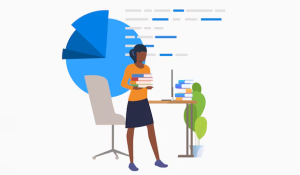Financial education for women is a crucial topic, especially when considering the unique challenges faced by women in Africa. Achieving economic independence can empower women to transform not only their own lives but also the societies in which they live. However, various barriers still limit women’s access to essential financial knowledge and resources. By identifying these obstacles and creating strategies to overcome them, we can pave the way for a future where women in Africa can confidently take control of their financial destinies.
A strong foundation in financial literacy can have a significant impact on a woman’s life. It allows for better decision-making regarding savings, investments, and expenses. Yet, despite the availability of resources, many women in Africa still struggle with gaining access to financial knowledge. This disparity is often rooted in cultural, educational, and systemic challenges that have persisted over the years. Nevertheless, by shedding light on these issues and promoting effective measures to address them, it is possible to empower women and foster greater participation in the economic realm.
Challenges faced by women in acquiring financial knowledge

Women in Africa face a myriad of challenges when it comes to accessing and acquiring financial education. Socio-cultural norms often dictate the roles women can play within society, which can limit their opportunities for learning and development in finance-related matters. These barriers can restrict women from seeking financial knowledge and accessing opportunities for economic advancement, thus perpetuating a cycle of dependency and limited financial autonomy.
Moreover, educational gaps significantly impact women’s ability to receive financial instruction. In many parts of Africa, girls face a higher likelihood of dropping out of school due to economic hardships or cultural expectations, which hinders their access to essential education, including financial literacy. Limited access to formal education directly correlates with reduced chances of learning about money management and financial planning.
Additionally, systemic barriers such as legal restrictions and limited access to financial services also impede women’s progress. Certain laws may hinder women’s rights to own property or businesses, which can discourage them from participating in the formal economy and restrict their ability to make independent financial decisions.
Cultural norms and educational barriers
Cultural norms deeply influence women’s ability to seek and apply financial knowledge. In some African societies, women are expected to adhere to traditional roles, such as homemaking and caretaking, which often do not involve active participation in financial matters. This mindset can discourage women from actively pursuing financial education, limiting their financial decision-making capabilities.
The educational system also plays a crucial role in shaping financial literacy. Access to quality education remains a challenge for many girls in Africa due to various factors, including poverty and traditional gender roles. This lack of formal education hampers their ability to engage with complex financial concepts and undermines efforts to build a more financially informed female population.
To address these cultural and educational barriers, encouraging community and school-based programs that promote financial literacy for girls and women can have a transformative effect. By integrating financial education into everyday curriculum and creating safe spaces for women to explore financial concepts, societies can challenge existing norms and inspire women to become financially independent.
Systemic and legal challenges
Women’s financial independence is often stunted by systemic and legal challenges that restrict their access to economic resources. In some African countries, legal frameworks do not fully support women’s rights to own property or conduct business, making it difficult for women to act as financial participants in their households or communities.
Banking institutions may also place restrictions on women, such as requiring them to have male guarantors for loans, which limits their ability to access credit and invest in entrepreneurial ventures. Such practices not only hinder women’s economic empowerment but also reinforce dependency on male counterparts.
Advocating for legal reforms and policy changes can help eliminate these barriers. By campaigning for equal rights in property ownership and financial transactions, and enhancing women’s access to banking and credit facilities, governments and organizations can create an economic environment where women are empowered to make informed financial choices.
Strategies for promoting financial independence
To promote financial independence among women in Africa, it is essential to implement targeted strategies that address the unique barriers they face. Initiatives that focus on education, community involvement, and policy advocacy can be powerful tools in transforming the financial landscape for African women.
First, educational initiatives aimed at enhancing women’s financial literacy should be prioritized. Workshops, seminars, and training sessions that focus specifically on teaching financial skills to women can be instrumental in empowering them with the knowledge needed to make informed economic choices.
Collaborations with local communities, schools, and NGOs can amplify these efforts. Second, technology can be leveraged to overcome geographic and logistical challenges. Mobile phones and online platforms can serve as effective channels for delivering financial education and resources, allowing women in even the most remote areas to access vital information and tools.



